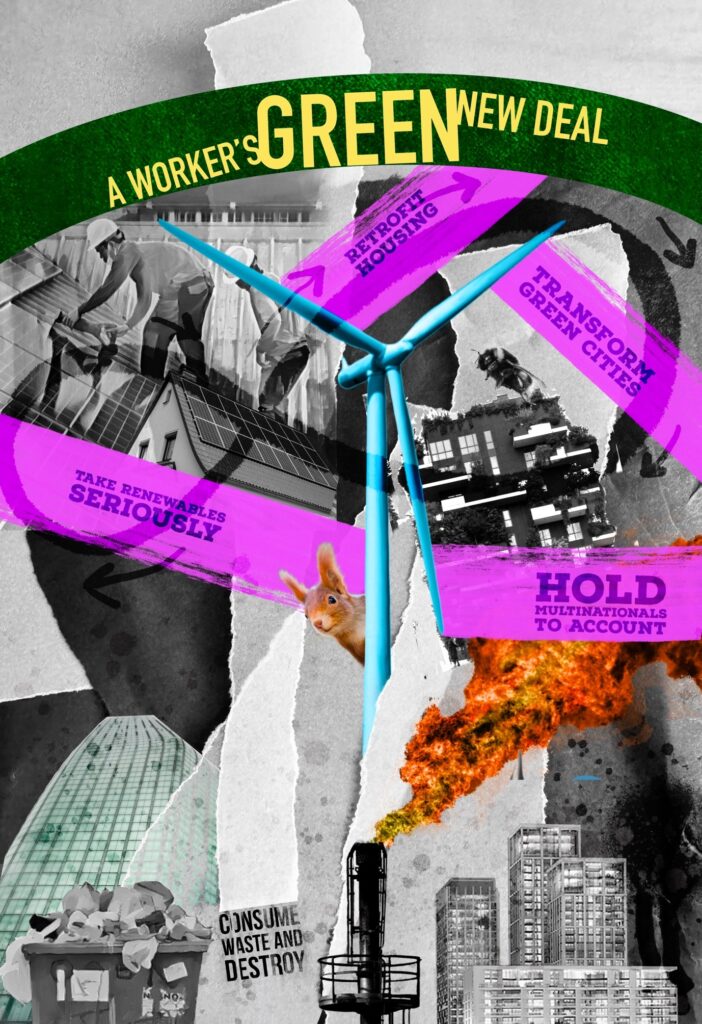
Act Now: A Green New Deal

Our society needs to transition to a more sustainable mode: lower carbon emissions, less air and water pollution, more liveable cities and regeneration of nature. To achieve these goals requires a linked set of reforms that touch every area policy discussed in this book. Government investment needs to be reorganized with improving sustainability as a central criterion. Private investment in green projects must be leveraged through tax incentives. New oil and gas licences must end, with a quadruple lock for workers whose industries are affected. The government needs to invest a minimum of £28 billion annually in decarbonising and expanding the energy supply, and reducing energy expenditure and emissions. Progressively higher standards are needed in terms of protecting our air and water, and making sure developments are planned around walking, cycling and public transport. To facilitate this, social control over energy, water and transport networks needs to be reasserted, and devolved to community level in line with the community wealth principle. Public investment in the countryside needs to be directed to regenerating nature rather than intensifying production, and community nature regeneration projects should be encouraged. Large areas of our seas need to be set aside for nature. These are not issues for other species – we humans cannot survive without these measures.
The Green New Deal is our response to the great challenge of our age. But the challenge of our age is also the opportunity of our age. The Green New Deal is an exciting, inspirational project for society that people can take pride in, that can improve their wellbeing, that can row back the rise of inequality, and that can reconnect people to the idea that democracy and their state can serve them.
Recommendations
- Reorganize public investment so that improving sustainability is a central goal for all infrastructure projects.
- Invest at least £28 billion per year in decarbonising the energy supply and reducing energy expenditure.
- Create a National Investment Bank out of the UK Infrastructure Bank and use the tax system to incentivize pension funds to invest in green projects.
- Introduce and progressively increase a carbon tax to generate funds for investment, and guide the development of economy towards lower-carbon solutions.
- End new licences for fossil fuel projects.
- Invest in a National Building Service to advance a programme of retrofit and improvement of the housing stock, including by making installation of heat pumps, solar panels and other sustainable investments mandatory in all new buildings, including by training workers
- Introduce tougher regulation and enforcement of regulations related to pollution of water and air.
- Divert public support away from intensive agriculture and towards the regeneration of nature in the countryside, and introduce marine protected areas.
- Place the costs of disposal and waste onto the producers of projects, and encourage reuse, repair and recycling by introducing Extended Producer Responsibility (EPR).
